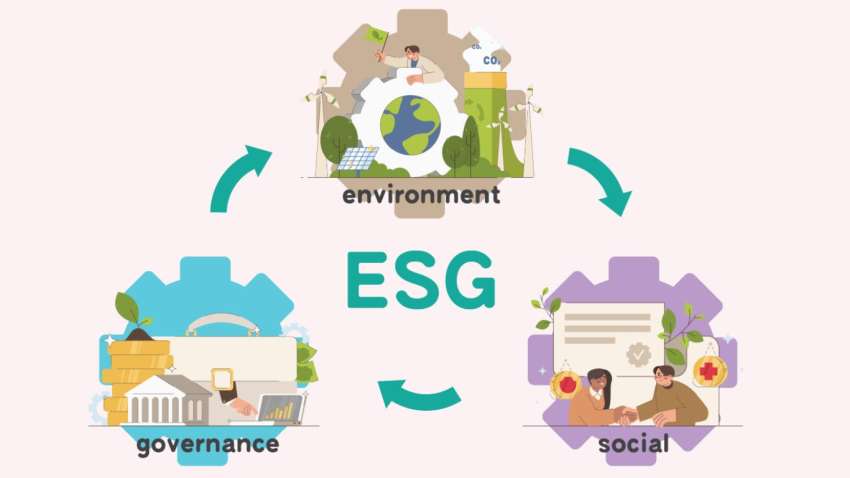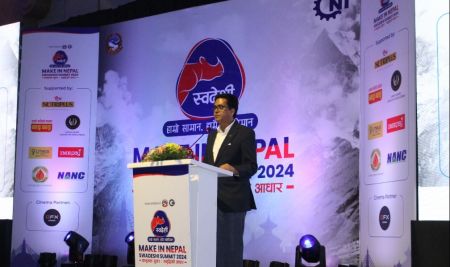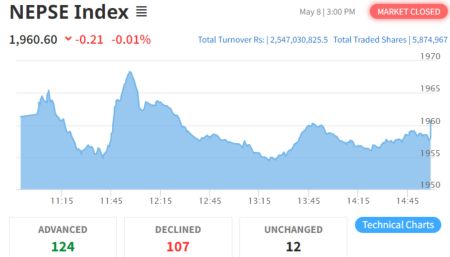By integrating ESG, Nepal's PE/VC industry is not only securing its financial future but also creating a sustainable path that balances economic gains with social and environmental well-being.
The foundations of Environmental, Social, and Governance (ESG) principles were laid in the mid-2000s, drawing from roots extending back decades. The 1980s witnessed the introduction of Environment, Health and Safety (EHS) as a discipline focused on managing environmental impact and workplace well-being risk, followed by socially responsible investment gaining prominence in the 1990s.
In the subsequent decade (1990-2000), attention shifted towards sustainability, emphasising the importance of meeting present needs without compromising the prospects of future generations. As the 2000s unfolded, Corporate Social Responsibility (CSR) gained traction, involving a company's voluntary actions to impact society and the environment positively. This encompassed philanthropy, community engagement, environmental preservation, employee welfare programs, and more. Fast forward to the present day, these evolutionary concepts converge into the comprehensive framework of ESG, designed to evaluate a company's performance across crucial areas such as environmental sustainability, social responsibility and governance.
The pivotal moment for ESG occurred in 2006 with the introduction of ESG issues into financial evaluations through the United Nations’ Principles for Responsible Investment (PRI) report. Significant strides have been made globally, with notable initiatives like the Global Impact Investing Network (GIIN), a champion of impact investing, since 2009. The Operating Principles for Impact Management Secretariat is another organisation working towards ensuring that impact considerations are integrated throughout the investment lifecycle. Their framework comprises nine principles for investors to design and implement impact management systems. Initially hosted by the International Finance Corporation (IFC), the GIIN became the successor host in November 2022.
Similar to these initiatives, the International Financial Reporting Standards (IFRS) established a new board in 2021 - the International Sustainability Standards Board (ISSB). This board has been creating and developing sustainability-related financial reporting standards to address investors' growing requirements for comprehensive sustainability reporting. IFRS advocates for the seamless integration of sustainability factors into financial reporting practices. As ESG gains momentum, the private equity and venture capital (PE/VC) industry finds itself at the forefront of integrating ESG practices for sustainable business success.
Introduction
Before delving deeper into ESG, it is essential to understand that ESG, socially responsible investing (SRI) and impact investing have subtle differences although they are often used interchangeably. SRI involves selecting or disqualifying investments based on whether they are related to socially harmful or unethical activities. In contrast, impact investing is focused not solely on avoiding harm but on actively promoting positive change.
ESG stands for Environment, Social and Governance. It is a framework for evaluating a company’s performance and impact on three distinct areas. It is a comprehensive tool that aids stakeholders in comprehending how a company navigates risks and opportunities associated with sustainability, reaching beyond mere environmental considerations.
Environment: The ‘E’ in ESG represents a spectrum of environmental considerations, from addressing climate change and greenhouse gas emissions to managing resource depletion and waste. Major corporations, such as Microsoft, Coca-Cola and Unilever, serve as exemplary models of environmental commitment. Microsoft, for instance, has set a goal to achieve carbon negativity by 2030 and plans to offset all its historical carbon emissions by 2050. Unilever is equally committed as it is trying to make all its plastic packaging recyclable, reusable, or compostable by 2025. These initiatives highlight the crucial role of companies' environmental responsibility within the broader framework of ESG principles.
Companies committed to strong ESG standards cultivate positive reputations among stakeholders and unlock operational efficiencies, establish market differentiation, and align with evolving consumer and investor preferences.
Social: Moving to the ‘S’ in ESG, it revolves around a company’s relationships with stakeholders, encompassing crucial aspects such as health and safety, diversity, equity, inclusion (DEI), and labour relations. In essence, it underscores a firm commitment to ethical and socially responsible practices throughout a company's operations. Tech giants like Google and Facebook are known for their extensive employee well-being programs which include mental health support, wellness initiatives and work-life balance policies.
Governance
The ‘G’ in ESG stands for governance. It encompasses the company’s policies, stakeholders’ rights and responsibilities. Likewise, it includes key areas such as board composition, management structure, executive compensation, information disclosure, auditing and corporate compliance. The emphasis here lies in transparent and responsible corporate governance practices, aligning with principles of ethics and accountability. In practical terms, effective governance is demonstrated through various actions, including recruiting independent, third-party auditors, fostering a more diverse board of directors, implementing robust data protection measures, enhancing executive accountability and formulating essential ESG policies.
Why ESG?
Along with considering and evaluating a company's impact on environmental, social, and governance, ESG plays a pivotal role in creating more substantial businesses. Adopting ESG practices proves instrumental in identifying and mitigating potential environmental, social, and governance risks. This proactive approach aids companies in bolstering their resilience against unforeseen challenges. Companies committed to strong ESG standards cultivate positive reputations among stakeholders and unlock operational efficiencies, establish market differentiation, and align with evolving consumer and investor preferences. Additionally, adherence to ESG practices ensures that companies comply with changing regulatory frameworks governing environmental protection, social responsibility, and corporate governance.
ESG in Nepal
Current Landscape: In its evolving phase, Nepal's private equity and venture capital (PE/VC) industry is working towards solidifying its position as a pivotal sector capable of substantially impacting the nation’s economy. Notably, foreign-backed institutions and funds have emerged as pioneers, leading the way in fostering impact investing in Nepal.
PE/VC firms employ diverse valuation methods during deal sourcing and due diligence, and few have started incorporating emerging practices like ESG valuation. They actively enhance ESG practices and advocate for integration within their portfolio companies. As the industry in Nepal continues to grow, PE/VC firms can be at the forefront by embracing ESG principles. This strategic approach could assist in aligning with the increasing concern among significant investors for impact investing, potentially attracting foreign direct investments (FDI) into the country.
Collaborative efforts from organisations, investors and regulators are needed to address these challenges and devise a more straightforward and transparent ESG reporting framework.
Bibek Shrestha, CEO of Invest for Impact Nepal (IIN), said that the awareness level of ESG is quite high in Nepal. “All the funds in Nepal with DFI and foreign investments have incorporated ESG practices as per the Limited Partners' requirements. Even non-foreign investment funds have shown a high interest in integrating ESG into their investment practices. This is a reflection of the evolution of the industry and the needs of time,” he added.
According to Shredstha, the relevance of integrating ESG practices is even higher in an economy like Nepal, as it helps understand the investment risks and plans to mitigate them. “As part of IIN’s support to the Nepal Private Equity Association (NPEA), we have organised several interactions and workshops for PE/VC funds. It recently conducted a needs assessment and plans to organise training to meet the identified gaps and needs of the industry,” he added.
Regulatory Landscape: The adaptation of ESG in Nepal is still voluntary. However, Nepal Rastra Bank (NRB) has introduced the provision of Environmental and Social Risk Management (ESRM) which mandates that banks and financial institutions (BFIs) assess environmental risks before extending credit facilities to businesses.
While the regulatory framework for the PE/VC industry in Nepal is underdeveloped and lacks sector-specific guidelines, regulatory bodies such as Securities Board Nepal (Sebon) and Office of the Investment Board Nepal play a pivotal role. These entities should work towards introducing comprehensive policies and procedures that facilitate the seamless adoption of ESG principles by PE/VC firms. Sebon can mandate adherence to the ESG Framework in investment policies, specifically for Specialized Investment Funds (SIFs). Expanding beyond the PE/VC sector, Sebon and Nepal Stock Exchange (Nepse) hold key positions in influencing corporate practices. They can introduce and mandate ESG reporting for all listed companies.
Moving beyond financial institutions, the Ministry of Finance should take initiative in establishing ESG Frameworks. These frameworks, once implemented, can serve as essential guidelines for development agencies, ensuring the incorporation of ESG principles into their programmes, thereby contributing to the broader sustainability goals of the nation.
Case Studies
Team Ventures: Team Ventures, a leading alternative investment firm based in Nepal, is dedicated to incorporating ESG principles within its operations and portfolio companies. Its diverse portfolio encompasses hydropower and solar projects, and an electric vehicle supplier company, united in their commitment to advancing Nepal's energy sector and fostering a sustainable energy market. The overall portfolio of Team Ventures has created over 1,800 employment opportunities. This includes providing more than 500 jobs for women, 600 local jobs creation and over 1,200 indirect jobs creation. Beyond job creation, these companies actively engage in workforce development through various training programs and workshops. To ensure strong governance practices, reporting to all stakeholders with complete accounting, reporting, and auditing on time is done, ensuring compliance with existing legal policies.
Foodmandu: Foodmandu is a technology-based, on-demand food and beverage delivery company founded in 2010. Following Series A funding through True North Associates in 2016, the company secured additional Series B funding from Team Ventures in 2020 and Series C funding from Dolma Impact Fund in 2022. Committed to adopting more robust ESG practices, Foodmandu promotes eco-friendly initiatives. Among its riders, it encourages the use of bicycles. According to the company, 75 out of 230 riders actively deliver using bicycles. The company uses environmentally friendly bags for food deliveries, supports green energy and has deployed waste segregation in its office. Foodmandu has played a significant role in job creation, providing direct employment to 3,612 individuals - 289 office staff and 3,323 riders. Women make up 12.68% of the company’s workforce, with one female director on the board and three women in key management positions. Foodmandu also engages actively with external stakeholders. The company has participated in various events, serving as an event partner for the "Gentlemen Drive for Men’s Health" in September 2023 and conducting college campaigns, including one on "Client Communication and Online Job Roles" in collaboration with Skill Lab. These efforts showcase Foodmandu's dedication to internal and external stakeholders, aligning with broader ESG principles.
Best Practices in India
In India, businesses have rapidly started acknowledging the significance of ESG criteria in evaluating their overall performance. Companies like Havells India and Godrej Consumer Products distinguish themselves among the 12 Indian companies listed in the Dow Jones Sustainability Index (DJSI) 2019, showcasing commendable sustainable practices.
Havells has successfully eliminated radioactive elements from its products, implemented zero water discharge facilities and launched renewable energy projects. Similarly, Godrej has expanded its renewable energy portfolio to 30%, achieved a 37% reduction in specific greenhouse gas emissions, diverted 99.5% of waste from landfills and reduced specific water consumption by 32%.
Additionally, HCL, one of India’s leading tech companies, fosters an all-inclusive and diverse workplace for individuals of all genders. The company was recognized in the Bloomberg Gender-Equality Index (GEI) for the second consecutive year in 2022. Nestle, another trailblazer, boasts a gender-inclusive culture, with women holding 43.9% of managerial positions. It aims to achieve 30% women in senior executive roles by the end of the year. Nestle has consistently been included in Bloomberg’s GEI for four consecutive years which emphasises its enduring commitment to gender equality.
The growing emphasis on ESG in India mirrors a global trend where companies are evaluated for their ethical and sustainable approaches, indicating the ever-increasing international acknowledgment of responsible and environmentally conscious business practices. As Nepal's PE/VC industry evolves, companies can draw valuable insights from the exemplary practices of their Indian counterparts, aligning with the international shift towards responsible and environmentally conscious business strategies.
Challenges and Limitations
Much like the global landscape in Nepal, ESG integration and reporting grapple with significant challenges, hindering the establishment of a standardised approach. A major hurdle is the need for a universally accepted reporting standard for ESG, resulting in diverse reporting methods. This makes it challenging for organisations to determine crucial aspects and measurement methods.
Determining the essential topics for ESG reporting poses another challenge. While companies aim to address pertinent matters for their operations and stakeholders, infrequent assessments need to align with investor expectations and evolving reporting regulations. ESG factors cover diverse aspects of a company's performance and often involve qualitative elements that are challenging to quantify.
Navigating the varied interests of stakeholders interested in ESG reporting intensifies complexity in Nepal, encompassing investors, employees, customers, communities, NGOs, and regulatory bodies. Each group possesses distinct needs and perspectives, making simultaneous communication with all stakeholders a formidable task. Furthermore, varying levels of knowledge among those interested in ESG pose a communication challenge. Bridging the gap between individuals with extensive understanding and those with limited knowledge requires conveying intricate ESG concepts and voluminous data in an accessible manner. Concerns about clarity and trustworthiness in ESG reporting further compound the challenges in Nepal. Establishing confidence in the accuracy and consistency of reported data remains difficult, potentially leading to misunderstandings or misinterpretations. In summary, the intricacies and limitations surrounding ESG reporting in Nepal are multifaceted. Collaborative efforts from organisations, investors and regulators are needed to address these challenges and devise a more straightforward and transparent ESG reporting framework.
Conclusion
As Nepal's PE/VC industry expands, adopting environmental, social, and governance (ESG) practices has become essential for sustainable development and resilience. ESG practices empower the industry to address climate change and drive ethical business practices. Beyond financial benefits, ESG also fosters a more equitable society by supporting initiatives that improve people's lives and communities. By integrating ESG, Nepal's PE/VC industry is not only securing its financial future but also creating a sustainable path that balances economic gains with social and environmental well-being.
(Jonchhe is an ESG Associate at Team Ventures. TEAM Ventures, is an industry-agnostic alternative investment firm with a diverse portfolio spanning the energy, technology, real-estate, manufacturing, financial institutions, agro-infrastructure, and electric-vehicles sectors.)






















